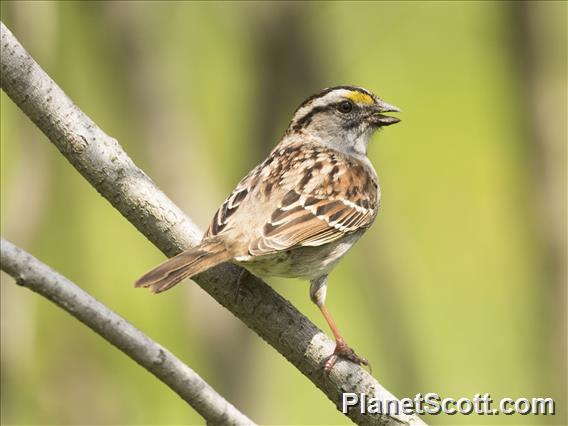White-throated Sparrow (Zonotrichia albicollis)

White-throated Sparrow (Zonotrichia albicollis)
×


White-throated Sparrow (Zonotrichia albicollis)
About White-throated Sparrow (Zonotrichia albicollis)
- Kingdom: Animals
- Phylum: Chordates
- Class: Birds
- Order: Perching Birds
- Family: Old World Buntings
The white-throated sparrow is a passerine bird of the New World sparrow family Passerellidae. It breeds in northern North America and winters in the southern United States.
Source: Wikipedia
Trips
Visits
-
2007-01-14
Brussel Sprout Field, United States of America× -
2007-03-06
Golden Gate Park - North Lake, United States of America× -
×
-
2009-05-05
Elgin - Bluff Spring Fen, United States of America× -
×
-
2013-03-04
John Heinz NWR at Tinicum (IBA), United States of America× -
2013-03-07
Spring Valley Nature Sanctuary, United States of America× -
2013-04-19
Bolivar Peninsula, United States of America× -
2014-05-09
Portal--Big Thicket, United States of America× -
2014-11-29
Lafayette Park, United States of America× -
×
-
×
-
×
-
×
-
×
-
×
-
×
-
×
-
×
-
×
-
×
-
×
-
×








